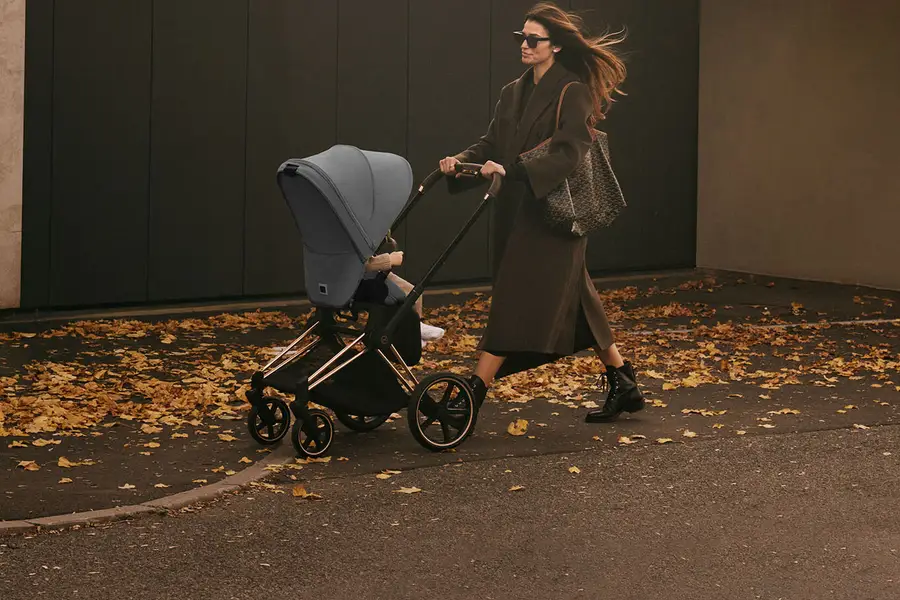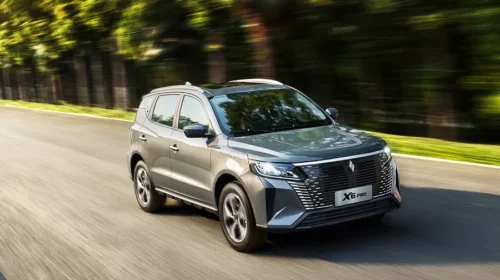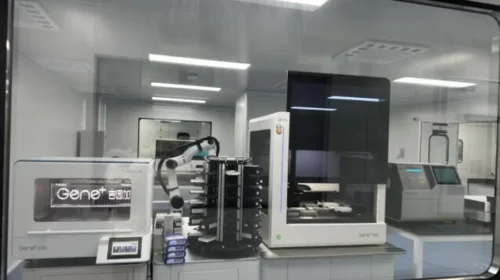Investors left crying as U.S. tariffs hit Goodbaby

The world’s leading producer of baby strollers and car seats is getting socked by a double whammy of U.S. tariffs and China’s baby bust
Key Takeaways:
- Goodbaby reported its revenue fell in the first nine months of the year, slipping into contraction after posting a small gain in the first half
- Gains by the baby products maker in Asia and Europe are helping to offset wobbly U.S. sales
By Edith Terry
By the time Goodbaby International Holdings Ltd. (1086.HK) launched its Hong Kong IPO in 2010, it had already become the leading seller of baby strollers in China for 17 years, feasting on a new middle class of parents eager to pamper their babies with only the best. It later used funds from the listing to embark on a global acquisition spree to become the world’s largest supplier of strollers and baby car seats.
In addition to dominating its home China market, the company had also become the largest supplier of strollers in the U.S. by 1996, and seven years later gained that title in Europe, making products for brands like Qinny, Nike Kids and Tomme Tippee.
But the company’s recent fortunes have been less bouncy, weighed down by setbacks ranging from declining birth rates and growing consumer caution at home, to Donald Trump’s imposition of tariffs on Chinese products this year. Those stumbles were front and center in the company’s third-quarter results published earlier this month, which showed a worsening from a similarly lackluster performance in the first half of the year.
The report showed Goodbaby’s revenue dipped by 1.1% year-over-year to HK$6.42 billion ($826 million) in the first nine months of the year, as the company slipped into contraction after reporting a 2.7% revenue rise in the first half of 2025. Revenue for its domestic gb brand did the worst, tumbling 18.1% for the nine-month period, while its Evenflo baby car seat brand slid 10.9%. Its Blue Chip design consulting business fell 19.9%, reflecting vulnerability of its customers to U.S. tariff turmoil.
Those declines were mostly offset in the nine-month period by an 11.7% increase for Goodbaby’s high-end stroller brand, Cybex, which accounted for 57.5% of the company’s total revenue.
Goodbaby’s shares dipped 4.2% in the four trading days after the announcement, but later regained that lost ground. Still, the stock’s latest close of HK$1.19 is just a fifth of its IPO price of HK$4.90 – hardly a great growth story for a stock that once looked so full of potential.
Goodbaby didn’t give out profit figures in the latest report, which only contained some limited data. But in its earlier midyear report issued in August, it said its net profit tumbled by 43.7% to HK$105.5 million year-on-year in the first half of 2025, while its net margin fell by 2 percentage points to 2.5%. So, it’s probably safe to say those metrics continued to deteriorate in the third quarter as well.
In a profit warning issued shortly before its midyear report, the company blamed weakness in the U.S. for its falling profits, partially offset by improvement for its business in other regions. Other factors undermining its profits included additional costs related to new regulatory standards for car seats and heavier promotions and marketing expenses.
Goodbaby’s earlier growth in many ways reflected the bigger rise of China’s manufacturing sector, dating from the country’s reopening to the outside world in the 1980s, through new heights it reached after it joined the World Trade Organization in 2001.
The company was founded by Song Zhenghua, now 76, a former middle school vice principal who was in charge of his school’s affiliated factory between 1989 and 1993. As the government encouraged entrepreneurs to open their own businesses, he invented a “push and rock” baby stroller under the Good Baby brand, which went on to become a household name in China.
Foreign acquisitions
In 2014 the company acquired German child car seat brand Cybex, whose founder, Martin Pos, still sits on the Goodbaby board, and Evenflo, a U.S. company founded in 1920 that initially made baby bottles before later diversifying into car seats and strollers.
According to news reports, tariffs imposed on baby products by the U.S. in April quickly led to price increases for major brands of strollers, child safety seats, and other goods, with an average price increase of 25% for strollers, and 20% for child safety seats. That may have been a factor squeezing Goodbaby’s gross profit margin to 49.6% in the first half of this year, down 3 percentage points year-on-year, reflecting difficulty the company had in passing tariff costs on to its customers.
Since the U.S. accounted for about a third of Goodbaby’s sales in the first six months of the year, the tariffs were clearly bad news. But like other Chinese manufacturers that came to dominate certain U.S. product categories in the heyday of globalization, Goodbaby has been adjusting and looks a bit undervalued with a price-to-earnings (P/E) ratio of just 7.
The Americas have been overtaken by Goodbaby’s European segment, which has grown from 27% of revenue in 2019 to 47% in the first half of this year, though that latter figure also includes the Middle East and Africa.
Competition in the mid-market range, lack of brand value, and cost shocks are clearly undermining the Evenflo brand, with its U.S. origins, while upmarket Cybex strollers are popular in Europe and powering Goodbaby’s revenue expansion there. While the U.S. market has been a recent pain point, Goodbaby’s biggest suffering in recent years has come in its home market in China, which has fallen from 35% of its sales in 2019 to just 20% or less this year.
Despite strenuous efforts by Beijing, China’s fertility rate was only 1.01 births per women, compared to 2.51 in 1990. That means far less children are being born who need Goodbaby’s products. Making matters worse, Chinese consumers are becoming more cautious these days as the economy slows, translating to less pampering for their children.
Despite the challenges, the company has been able to adapt to market changes before. It evolved from largely an OEM making products for other brands, to the higher margin business of making its own branded products after the Cybex and Evenflo acquisitions. Still, the company’s revenue of HK$8.9 billion for the 12 months through June is well off its peak of 9.7 billion in 2021.
Despite political risks and a top-line lacking drivers other than Cybex, analysts seem to think the company can solve its problems. CICC reduced its 2025 profit forecast by 31% after the midyear report, but raised its target price for 2026 by 23% to HK$1.62. First Shanghai had an even higher target price of HK$1.85 for the company in October, rating the stock a “buy.”
Goodbaby rival Butong Group (6090.HK), owner of the BeBeBus brand of strollers, car seats carriers and other baby products, has performed strongly since its $92 million IPO in September, with its shares up by more than 40% since then. But Butong’s revenues are still growing quite strongly, even as Goodbaby’s revenue begins to slump. Still, investors may decide that Butong looks just a tad pricey with its P/E ratio of more than 100, which could benefit Goodbaby if they decide to look for cheaper alternatives.
To subscribe to Bamboo Works weekly free newsletter, click here






